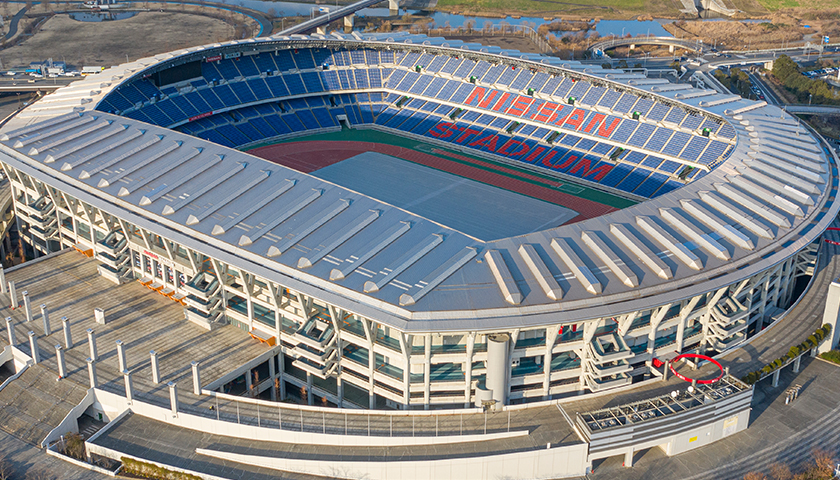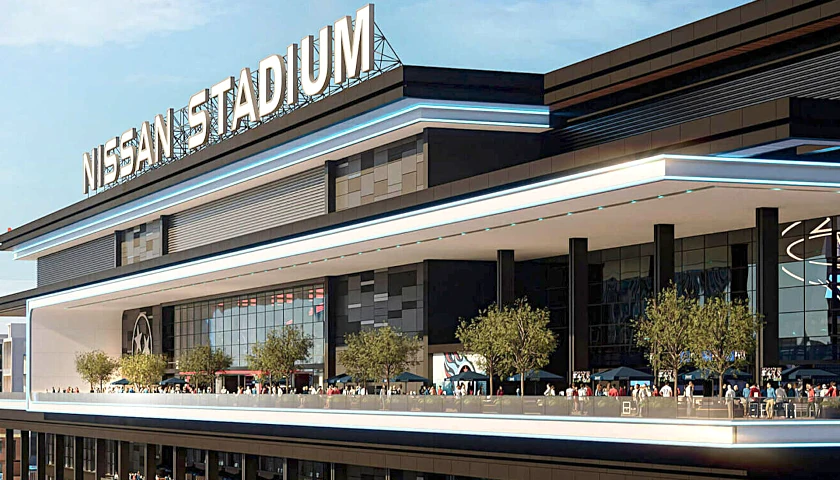by Jon Styf
Nashville’s East Bank Stadium Committee plans to parse information on a new projected $2.2 billion Tennessee Titans stadium deal once it’s announced, along with information on the city’s current lease obligations and a $200,000 stadium study the council has planned along with land-use requirements around Nissan Stadium.
But the group will not be producing its own economic impact and tax impact numbers related to the proposed project.
“I am guessing the council doesn’t have an appetite for spending $25M on its own professionals, or $5 million or $1 million or half a million,” committee chair Bob Mendes said in the group’s planning meeting. “So we’re, necessarily, going to have to rely on information from others on that. I assume we’re going to hear about that. When we’re going to get presented with an actual deal, there’s going to be a list of income streams and a look forward on what it generates over time. Sources and uses.
“We will, almost certainly, have to rely on information from people hired other than from the council.”
Mendes mentioned that a deal on a new Titans stadium could be announced by Mayor John Cooper’s office in either August or September. He said the committee will have a website with presentations that should provide council members and the public with all the information on a new stadium deal before the council votes on that deal.
For now, the committee has meetings planned for 4:30 p.m. on July 28, Aug. 18 and Aug. 31 with the hopes of hosting Wednesday meetings in the same time slot after that. Mendes said that the opening meeting will include 30-minute presentations on land use and planning requirements for the plot, a tutorial on the 1996 Nissan Stadium deal and then a look into the technical side of the first-class stadium stipulation in that lease.
The lease defines the term and then stipulates that Nissan Stadium provide services similar to other similar stadiums.
An addition to the lease defined “first-class condition,” in part, as being in compliance with law, being in good condition/repair with wear and tear expected and “having the level of improvements and new technology from time to time found at a reasonable number of Comparable Facilities” with further stipulations.
Mendes said that the Aug. 18 meeting will look at the city’s repair obligations under its current lease, which Titans CEO Burke Nihill estimated was $1.839 billion.
Metro Nashville Budget and Finance Chair Burkley Allen said that a vendor has been chosen for the council’s $200,000 study that will help investigate the difference between Nihill’s estimate and a 2017 city-funded analysis estimated that Nissan Stadium required $293.2 million in capital improvements over 20 years.
On Aug. 31, Mendes plans to invite Cooper’s office to the committee’s meeting to provide an update on the potential stadium deal.
“We anticipate that our committee is not going to vote in favor of recommending or not recommending any particular legislation along the way,” Mendes said. “Our job is to gather information, enough information to get the public and council members well enough informed to make a quality decision on the legislation that ultimately we will see regarding the stadium and especially the infrastructure that goes along with the East Bank.”
Funding for the stadium would include $500 million from the state of Tennessee along with Nashville’s portion of taxes for sales at the stadium and half of the taxes from sales on 130 acres planned to be developed outside the stadium. Tennessee has conceded a 5.5% sales tax at the stadium and 2.75% sales talks in the future development outside the stadium while also approving a 1 percentage point increase in a hotel-motel tax in Davidson County.
Team ownership and an NFL loan are expected to pay $700 million toward the stadium and will be responsible for any construction overages.
Nashville would need to get bonds, through the stadium authority, for the project and would rely on the projections from the team and mayor’s office to solicit those bonds, which Cooper’s staff has said will be revenue bonds as opposed to general use bonds, meaning that tax money will be assigned to directly pay those bonds.
Economists, however, disagree with the numbers in a Titans/Tennessee two-page impact report distributed to state lawmakers before their vote on funding for the project.
“It looks like it is just reporting gross numbers, not net numbers,” Kennesaw State economist J.C. Bradbury said after reading the two-page report. “That is tax revenues that come directly from Titans/stadium-related spending without accounting for the fact that much of that spending would have happened elsewhere. This is just reallocated spending.”
– – –
Jon Styf is a regular contributor to The Center Square. An award-winning editor and reporter, Styf has worked in Illinois, Texas, Wisconsin, Florida and Michigan in local newsrooms over the past 20 years, working for Shaw Media, Hearst and several other companies.
Photo “Nissan International Stadium” by Arne Müseler CC 3.0.






the NFL has become an established religon.
Once th3 new stadium is in place then convert the old site to a major league Baseball stadium which as I understand it MLB is very interested in getting a team here. And every one knows Nashville is a fun place to visit. . .(WOULD HAVE BEEN VERY GOOD HAD THE REPUBLICAN NATIONAL CONVENTION BEEN HERE)
AFRAID OF FRAUD AND PAYOFFS
The state of Tennessee is throwing more money at this than Nashville is, why not criticize THEM in the headline as well? They are just as free to request an independent assessment.